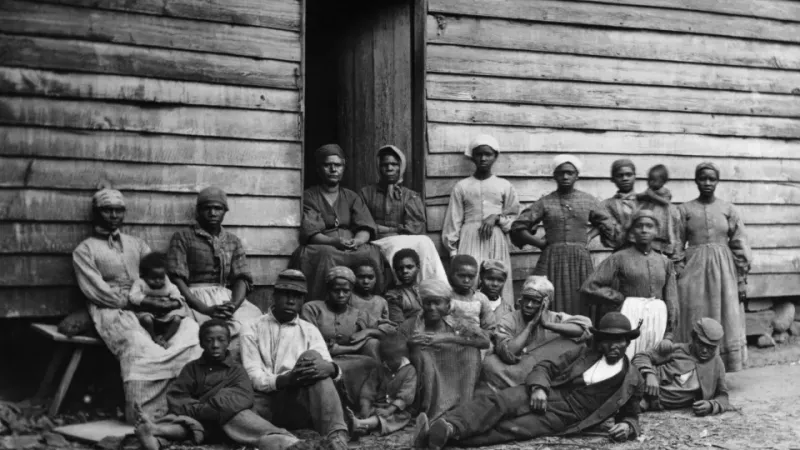California’s first-in-the-nation reparations task force has released a report that details how slavery has impacted nearly every aspect of Black life in America and recommends ways the state should address Black communities that have been harmed by systemic discrimination.
That could mean holding police accountable, expanding voter registration, improving Black neighborhoods, putting a stop to bank and mortgage-related discrimination and free tuition, USA Today reported.
“This 500+ page report chronicles the harms against the African American community, starting with the transatlantic slave trade, the institution of U.S. chattel slavery, Emancipation, and the broken promise of Reconstruction, genocidal Jim Crow, to contemporary harms,” Taskforce Chair Kamilah Moore told ESSENCE via email. “It is the most extensive government-issued report on the African American community since the Kerner Commission in 1968,” she said.
The report is the first at the state level and comes amid increased national discussion on reparations as well as local and municipal actions. H.R. 40, legislation that would establish a national commission to study reparations and explain U.S. government involvement in slavery and systemic discrimination, passed the House Judiciary Committee last year but has since stalled.
According to the Associated Press, the 589-page report lays out how a Black California resident may qualify for financial restitution. The state plans to create an office that will work with African Americans who are descendants of free or enslaved Black people who were in the U.S. in the 19th century. The office will help those members of the Black community record their eligibility for reparations.
“I hope that this report is used not only as an educational tool but an organizing tool for people not only in California but across the U.S. to educate their communities,” Moore said.
In March, reparations advocates stated that all Black people should receive restitution.
However, the nine-member task force voted to restrict reparations specifically to descendants.
Taskforce Vice-Chair Dr. Amos C. Brown said, “Other groups that have suffered exclusion, oppression, and downright destruction of human existence have received reparations, and we should have no less.”
A comprehensive reparations plan will be due to lawmakers next year.




